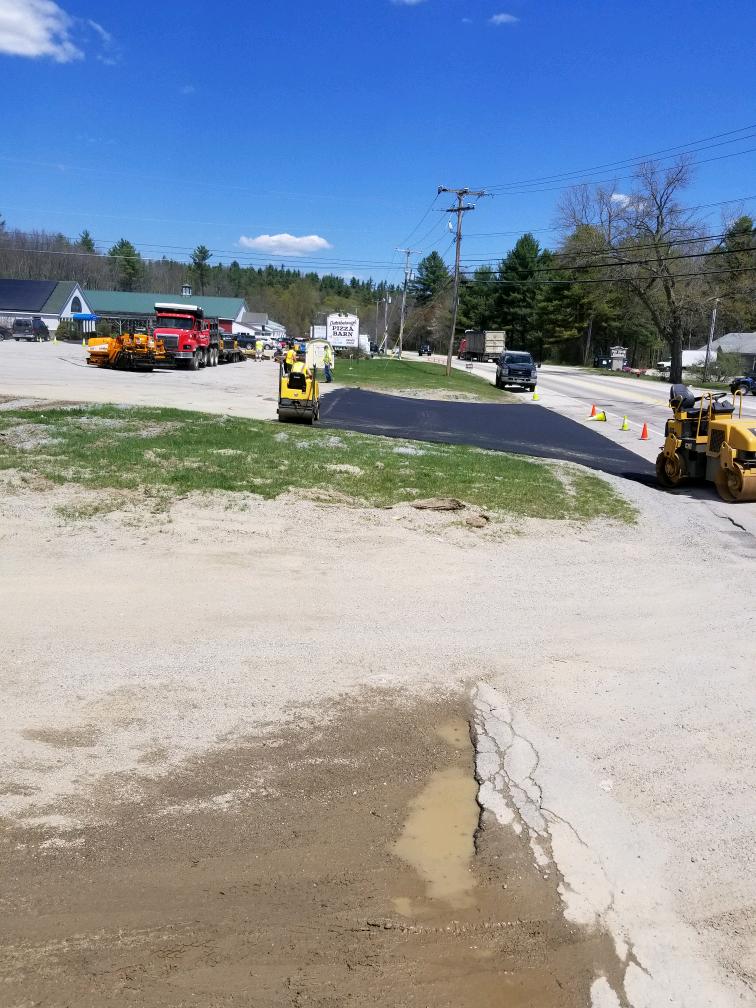9 Things That Damage Your Asphalt Driveway

Driveways play a crucial role in making a home beautiful, accessible and safe. They are one of the first things people will see if they arrive at your property. Also, they are often used multiple times in a day.
Thus, a damaged asphalt driveway can significantly lower your property’s aesthetic appeal, functionality and value.
Although asphalt is a long-lasting, flexible, and strong material, it can get ruined when it is consistently exposed to certain damaging conditions. As soon as you notice signs of damage, these must be treated immediately. Otherwise, your asphalt driveway will deteriorate until it needs to be totally replaced.
Here are the nine common causes of asphalt damage and what you should do to prevent them.
1. Poor installation
Poor installation is one of the common causes of cracks in asphalt driveways. When the constructed base is installed improperly, problems will arise immediately after installation. Once the inferior materials get wet, there will be uneven pressure on your asphalt driveway.
The only way to avoid these problems is to do careful and thorough research on the contractors in your shortlist for hiring. Don’t just opt for one that suddenly knocks on your door. Instead, take your time in researching which asphalt driveway contractor offers the best service in your area at a reasonable price.
2. Water
Water can easily wear down your driveway by infiltrating your paved surface, washing away its sand and gravel base. As a result, the top surface layer becomes distorted, leading to cracks. Though asphalt dries hard, it loses its flexibility over time. This means even a small crack can ruin your entire driveway.
So don’t allow water (even rainwater) to pool in close proximity to your driveway. If you choose to work with our asphalt driveway contractors, they will check first if the location is far from where water drains before installing your asphalt driveway.
3. Heavy loads
Similar to any surface, your asphalt driveway has small imperfections that are usually magnified by force. This construction material tends to lose its form if it is under a substantial weight. So if heavy vehicles or equipment travel across or park on your driveway constantly, it will break apart and begin to settle unevenly. As a result, this will create an unstable driveway with cracks and potholes.
Thus, you must pay attention to the kinds of vehicles parking or traveling across your driveway. As much as possible, don’t park several cars on your driveway all at the same time and prevent other cars and trucks from gaining access to it.
4. Tree roots
Your landscape can beautify your home, but if the trees are too close to your asphalt driveway, their roots can destroy it from underneath. As they grow, the roots of the trees will push against your driveway’s foundation, forcing the asphalt to give way.
The best way to prevent this is to always keep your landscaping in check. For instance, avoid planting trees in close proximity to your home or driveway, and keep all your trees well-pruned. You can also make use of a root barrier to inhibit the growth of tree roots at certain points.
5. Rock salt
If you are stocking rock salt for winter to help you in melting away stubborn ice, now is the best time to stop this practice. This substance is hard on asphalt since it boosts the number of thaw/freeze cycles.
If snow and rain sit on your driveway, they will penetrate it through small cracks. When the water freezes, it will expand, thus blasting your driveway. As the weather warms up, the water will thaw, penetrate deeply, and then freeze and expand once again.
Thus, you must avoid using rock salt on your asphalt during winter months. You can actually make use of sand by sprinkling it on top of the ice and snow. But if using rock salt seems unavoidable, make sure to remove all the excess salt so it won’t cause further damage.
6. Studded tires
Studded tires are a great help during winter so you can safely get around snowy streets. However, these can create holes in your asphalt driveway. So as much as possible, avoid repetitive drives using these types of tires over your driveway.
7. Oil Spots
If you clean up oil spills quickly, these won’t cause damage to your asphalt driveway. But if the oil has already soaked into the surface, this will break it slowly. So don’t park cars that leak oil over your driveway.
8. Oxidation
Oxidation happens if the asphalt is exposed to oxygen and then hardens and becomes gray. When this occurs, your driveway will become less flexible, making it susceptible to cracks, especially when combined with heavy loads.
9. Shovel
Shoveling snow can cause damage to your asphalt driveway. If you’re not careful enough, the metal blades can scratch the surface, thus damaging your driveway every snowfall.
So instead of using a metal shovel, consider using its plastic counterpart to reduce the damage. Also, be cautious when shoveling snow by stopping at about 1.27 cm above the surface and not digging down with sharp blows.
Preventing these nine things from damaging your asphalt driveway is the best way to preserve the beauty and functionality of your outdoor space. But if the damage is already present, get it fixed right away. Contact our asphalt paving contractors now.
